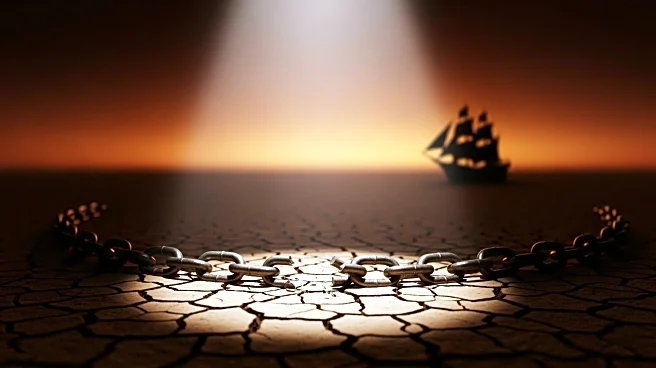What's Happening?
Former Barcelona mayor Ada Colau has alleged that activists involved in the Gaza flotilla faced abuse while in Israeli custody. The flotilla, aimed at breaking the Israeli blockade of Gaza, has been a point of contention, with activists seeking to deliver humanitarian aid to Palestinians. Colau's claims have reignited discussions about Israel's treatment of detainees and the broader implications for humanitarian efforts in the region. Human rights organizations have documented instances of alleged abuse, calling for international scrutiny and accountability.
Why It's Important?
The allegations of mistreatment of Gaza flotilla activists highlight ongoing concerns about human rights violations in the Israeli-Palestinian conflict. The situation underscores the challenges faced by activists and humanitarian workers in delivering aid to Gaza, a region heavily reliant on external support due to the blockade. The claims may influence international perceptions of Israel's policies and prompt calls for greater oversight and reform. The issue also reflects broader geopolitical tensions, with implications for diplomatic relations and peace efforts in the region.
What's Next?
The international community may respond to Colau's allegations by calling for independent investigations into the treatment of detainees. Human rights organizations are likely to increase pressure on Israel to adhere to international standards and ensure humane treatment of activists. The situation may also lead to renewed advocacy efforts by solidarity movements supporting the Palestinian cause. Diplomatic channels may be utilized to address the concerns raised and seek resolutions that uphold human rights and humanitarian principles.
Beyond the Headlines
Colau's allegations bring attention to the ethical and legal dimensions of activism in conflict zones. The risks faced by activists challenge the balance between humanitarian intentions and geopolitical realities. The situation raises questions about the effectiveness of international human rights mechanisms in holding states accountable. It also highlights the role of public advocacy and media in shaping narratives and influencing policy decisions. Long-term implications may involve shifts in international support for humanitarian missions and increased scrutiny of state actions.










